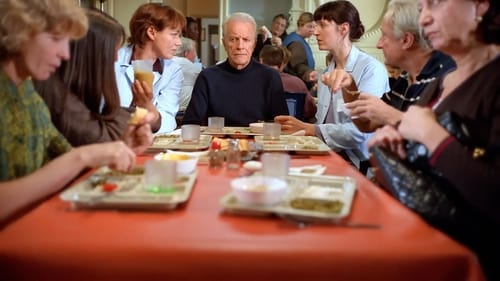
Writer
1986, a young boy tells you about Bougie, his city of birth, and asks you to go there because he know he will never go back. It is in Algeria, in Kabylie. 2011, you are invited there and you go as a silent promise.

Director
1986, a young boy tells you about Bougie, his city of birth, and asks you to go there because he know he will never go back. It is in Algeria, in Kabylie. 2011, you are invited there and you go as a silent promise.

Writer
Video letter directed by Anne-Marie Faux on the occasion of the 20th anniversary of the Côté Court Short Film Festival.

Director
Video letter directed by Anne-Marie Faux on the occasion of the 20th anniversary of the Côté Court Short Film Festival.

Video letter directed by Anne-Marie Faux on the occasion of the 20th anniversary of the Côté Court Short Film Festival.

Director
There is no denying that autobiographical intentions and introspection have their pitfalls. But a man's voice off screen sets the tone from the start: "There is no such thing as a private diary. The very expression is nonsensical." No chance then to see outpourings, confessions or explanations.

Claire
Trapped in an old folks home where people keep going missing, an ex-cop must overcome his Alzheimers to find out who is killing people in this jigsaw thriller.

Narrator (voice)
From what was to me a gift of friendship day: a book makes some of Rosa Luxemburg's prison letters written by her friends Sonia Liebknecht and Mathilde Wurm between July 1916 and October 1918. And all the jingles who composed this period: songs of birds, plants, colors and sounds passages. Those for events in the events of the being-locked. As for the outside: October, World War Revolution, The emigrant and Chaplin The Adventurer, The affliction flowers and Klee's zoological garden. Appearances / disappearances, present stories, their intertwined. Destinies.

Writer
From what was to me a gift of friendship day: a book makes some of Rosa Luxemburg's prison letters written by her friends Sonia Liebknecht and Mathilde Wurm between July 1916 and October 1918. And all the jingles who composed this period: songs of birds, plants, colors and sounds passages. Those for events in the events of the being-locked. As for the outside: October, World War Revolution, The emigrant and Chaplin The Adventurer, The affliction flowers and Klee's zoological garden. Appearances / disappearances, present stories, their intertwined. Destinies.

Director
From what was to me a gift of friendship day: a book makes some of Rosa Luxemburg's prison letters written by her friends Sonia Liebknecht and Mathilde Wurm between July 1916 and October 1918. And all the jingles who composed this period: songs of birds, plants, colors and sounds passages. Those for events in the events of the being-locked. As for the outside: October, World War Revolution, The emigrant and Chaplin The Adventurer, The affliction flowers and Klee's zoological garden. Appearances / disappearances, present stories, their intertwined. Destinies.

Director
A documentary about the life and career of Maurice Pialat produced by his widow, the accomplished film producer Sylvie Pialat. The film interweaves clips from his films with interview footage of Pialat, who speaks of growing up as an only child, his interest in painting, his early influences in cinema from Yasujiro Ozu to John Ford, his disaffection with the French New Wave, and the theme of abandonment in his films. Pialat’s remarks offer insights into his aesthetic strategies and hint at his reputation as a challenging, irascible director, known for having pushed his actors to deliver raw and powerful performances.

Drirector
A documentary about the life and career of Maurice Pialat produced by his widow, the accomplished film producer Sylvie Pialat. The film interweaves clips from his films with interview footage of Pialat, who speaks of growing up as an only child, his interest in painting, his early influences in cinema from Yasujiro Ozu to John Ford, his disaffection with the French New Wave, and the theme of abandonment in his films. Pialat’s remarks offer insights into his aesthetic strategies and hint at his reputation as a challenging, irascible director, known for having pushed his actors to deliver raw and powerful performances.











